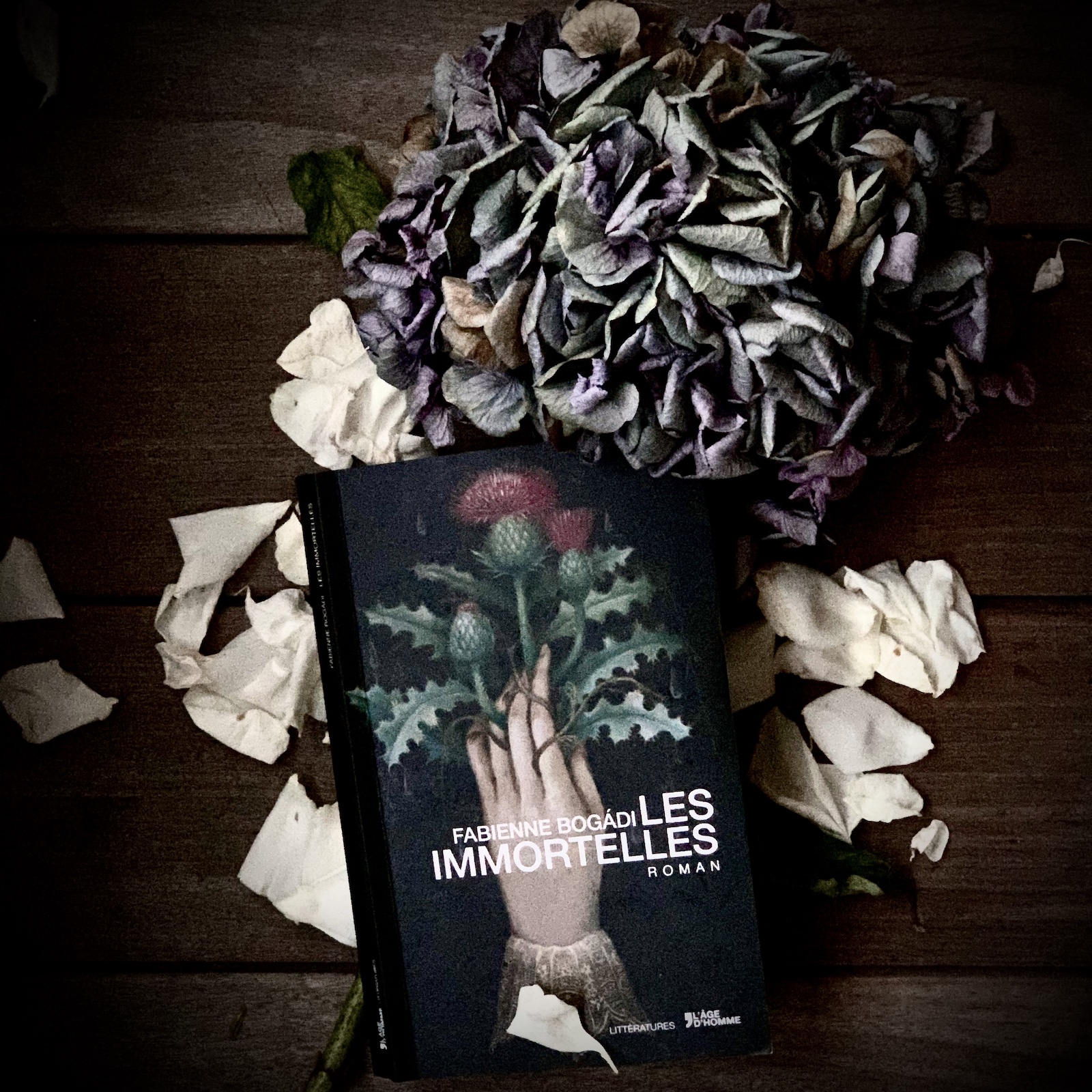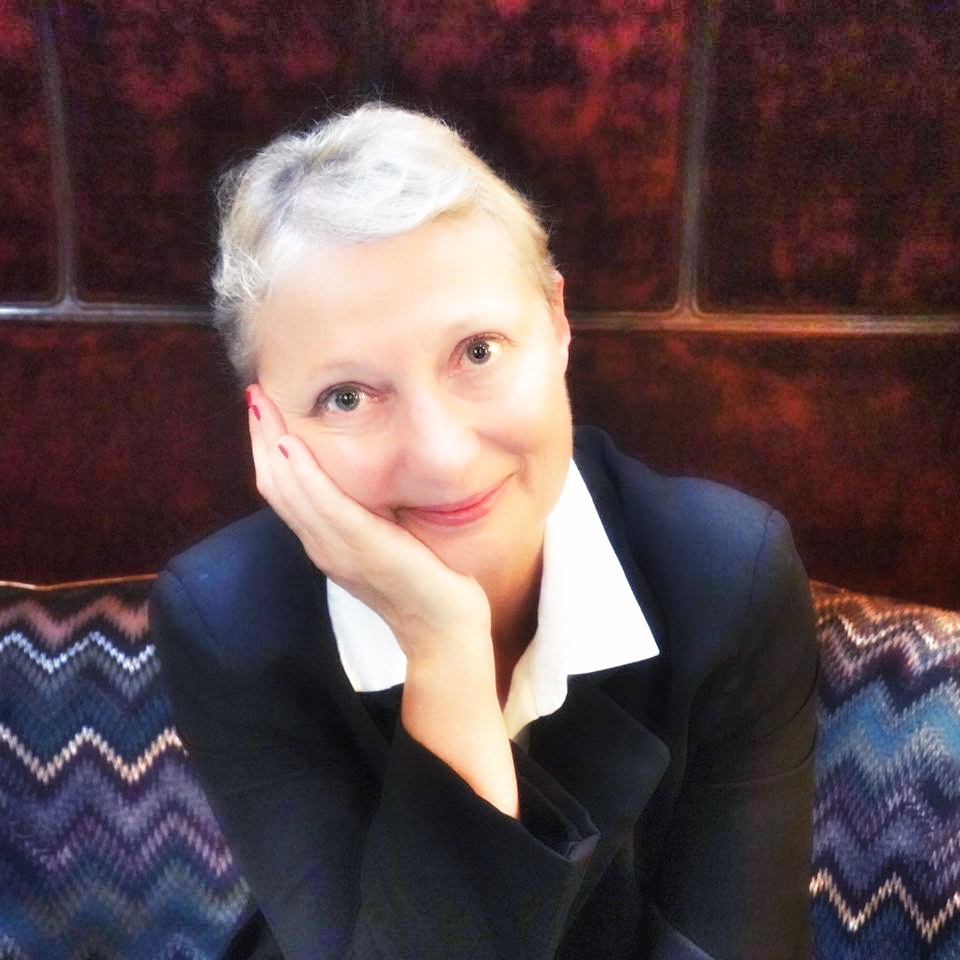Remedies and poisons, the destiny of a healer
The writer Fabienne Bogádi has just won the Prix des Lecteurs de la Ville de Lausanne with her latest novel. This contemporary tragedy, written in a luminous language, depicts the archetype of the woman magician who cannot go against her destiny. Portrait: Michel Bruno. Text and photo: Isabelle Cerboneschi.
Impossible to summarize Les Immortelles, Fabienne Bogádi’s latest novel. The story could just as well fit into a corner of a newspaper, below, on the left, in the news section, or in a play by Euripides. She has turned it into a novel, written in a musical language, that makes you forget the darkness of the plot. “I did it on purpose,” she says. You need light: it creates a tension between beauty and ugliness.”
Dea, the main character, was born into a family of horse and bull breeders, a family of dark characters, where she is a kind of stain with her beauty from another world, her milky white skin, her eyes blue like the sky and her hair of gold. “Dea has fallen to Earth like a dove from the clouds.”
In addition to her beauty, she has the gift of understanding nature, of communicating with plants and flowers, of making ointments, remedies and poisons from them. She learned this from her mother, the magician, a huge heap of flesh, who lives prostrate in her bed when she does not wave her skillful hands in her laboratory.
Dea is a druidess. She knows the song of freedom, and if life had been sweeter, she would have drunk that freedom to the dregs, and been a powerful woman, in the line of all powerful women. Except that the rules of tragedy don’t hear it that way. “The character is caught up in his destiny and can do nothing. It is beyond her will, like a river goes to the sea, whether we like it or not,” the author explains.
”Dea is an archetype. She can be manipulated but, because of her knowledge of plants, she possesses an enormous power which should not be disturbed.
Fabienne Bogádi tells the unspeakable, the incest of the father, then the hold of the husband, and the domestic violence that leads to infanticide. Said like that, it is unbearable, but the author’s sentences form a melody, a languorous, sweet tango, which hurts and feels good at the same time. The rythme, the music of her words is a language that exists only in her head. And it is very beautiful. This Swiss woman, born stateless, of Hungarian origin, is fluent in English, German, Italian and Spanish, in addition to French of course. “I do a lot of translations and I live immersed in foreign languages. It’s not impossible that I’ve drawn from this register to find sounds that respond to each other and assonances,” she says.
“Dea is an archetype. She fell to Earth and doesn’t understand her life. We don’t understand her either. I wanted to show through her, that one should not rely on appearances. She can be manipulated but, because of her knowledge of plants, she possesses an enormous power which should not be disturbed.”
It is difficult to anchor the novel in a specific place or time, even if one understands little by little that one is in the present. “I don’t say where it happens, but I have situated the story in Argentina.”
There are two struggles in this book. The first one? The preservation of nature. “I invite you to become aware of its language, its presence,” the author says. The second is a struggle for women and their legitimacy to exist. Women can do anything.”
Dea is a strong woman who falls under the spell of a narcissistic pervert. “Their preys are often strong women, because there is a power to be taken from within them to make it their own.”
We let ourselves be numbed by Les Immortelles, as if the power of Dea, the magician, could act on the reader. One vanishes in the words of Fabienne Bogádi, as in the “soft, sea-blue sofa, washed by the sun and whose bouncing cushions make velvety waves,” where the heroine’s father overstepped his rights. “When I start writing, I see the room, I’m in it, I feel it and I use all my senses. I’m no longer in my reality,” the author confides.
Fabienne Bogádi has just won the Prix des lecteurs de la Ville de Lausanne. “Readers have an intimate knowledge of reading. I have thought a lot about them, trying to say enough but not too much to let them fill in the blanks, notes the author. A reader’s prize is priceless.”
Les Immortelles, Fabienne Bogádi, L’Âge d’Homme.















